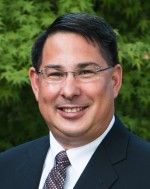By Tony C. Dreibus
Tourists looking for the quintessential Washington State experience have a new reason to stop in North Bonneville, nestled in the hills of the Columbia River Gorge just off the Evergreen Highway.
Inside an unassuming building that could be mistaken for any number of industrial businesses sits the first recreational marijuana shop in the U.S. – and possibly the world – owned by a municipal entity.
Cannabis Corner operates under a business structure known as a Public Development Authority (PDA), a legal construct that only exists in Washington. A five-member board oversees the business, with all employees paid by the PDA and the private investors who helped fund the shop. No tax money was used in its operation.
The structure gives this store a unique competitive advantage: because it’s a municipal corporation, it isn’t required to pay a 10% federal income tax required of other businesses.
Cannabis Corner was formed after city councilman Charles Pace brought the idea to his colleagues in 2013. Mayor Don Stevens, who smoked marijuana off and on since high school, was immediately on board with the idea and thought it was a great way for the city to have more control over the rec shop.
Stevens admits that while the structure does allow Cannabis Corner to sell its marijuana, edibles and ancillary products for a lower price, “we’re 45 minutes from any major metro area, I don’t know how much of an advantage it would be.”
Likewise, few competitors are concerned about Cannabis Corner’s ability to sell for less.
In fact, other rec shop owners perceive North Bonneville’s agreement with the store to be positive because it means acceptance among not only users, but also among government officials.
“When we see the city working with (Cannabis Corner), we see it as a benefit,” said Shon-Lueiss Harris, an assistant manager at Vancouver, Washington’s New Vansterdam rec shop, the highest-grossing rec shop in the state. “It’s an interesting idea, and we’d heard mumblings that it was going to happen. It’s just too bad we didn’t get there first.”
Employees of the shop receive above-average wages, starting at $11 an hour with medical and retirement benefit options, said store manager Robyn Legun. That pushes up operations costs, reducing any advantage the store may have over competitors that pay less or don’t offer benefits.
Alexander Rodriguez, the owner of Tacoma rec shop Rainier on Pine, said he doesn’t see consumers driving out of their way to save a few dollars.
Rodriguez also speculated that worries about North Bonneville’s model are mostly unfounded because few legislators, especially those in bigger cities, will want their name associated with city ownership of a recreational marijuana shop, even if it is legal under state law.
“Most politicians are not going to get involved that industry,” he said. “Most city officials aren’t going to get involved in the licensing. I highly doubt it’s going to fly in any other place that has a major population.”
Cannabis Corner’s gross revenues thus far have averaged about $2,000 to $3,000 a day. While that’s well below what was originally anticipated, business has been brisk, Legun said. The clientele has been mostly regulars, along with a flood of newspaper, television and online publication reporters, coming and going, she said.
Business is expected to pick up once the weather improves and more hikers, cyclists and other outdoor enthusiasts begin making the trek from Seattle or Portland to pursue leisure activities.
Profits, projected at about $225,000 in its first year, will go toward city projects in the form of grants. Groups that would qualify for funds but are against legalization have already pre-emptively turned down their share of the funds, Stevens said.
“More for everybody else,” he said.
Still, Stevens said he’s received calls from council members in other towns and cities, which he didn’t name, asking about the city’s involvement in Cannabis Corner, how the PDA is set up and what benefits North Bonneville receives. It’s something that he can see spreading if it works out in his town.
“I can see cities of all sizes taking a look at this,” he said. “By the time the next application period rolls around, there’ll be better sense of how it’s working for us and how it’ll work for other entities, so I wouldn’t be surprised to see more cities and towns doing this.”
Tony Driebus can be reached at tonyd@mjbizmedia.com.




